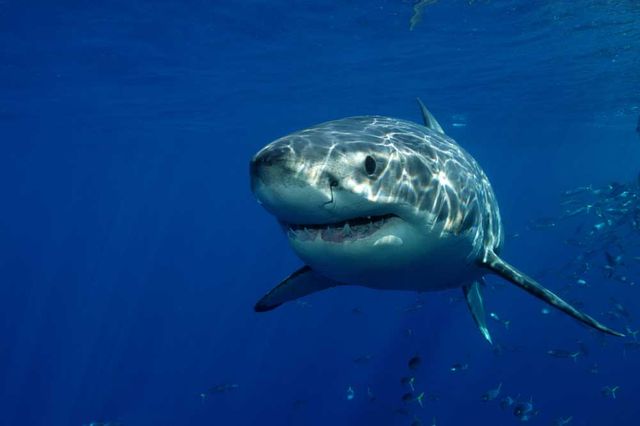
On Thursday, the government of Western Australia released that will allow the killing of great white sharks that venture too close to people in the water. The government said it approved the measure because great white sharks killed five people off the region's coast within the last year.
“We will always put the lives and safety of beachgoers ahead of the
shark,” Western Australia Premier Colin Barnett . “This is, after all, a fish—let's keep
it in perspective.”
The government set aside $2 million (Australian) for tracking and hunting measures out of a $6.85 million plan meant to reduce shark attacks. of the protected fish occurred only after a shark attack.
The news came on the same day that the U.S. federal government to study a West Coast population of great white sharks to determine whether they should be protected under the Endangered Species Act. NOAA made the decision after by conservation groups that included Oceana, the Center for Biological Diversity, Shark Stewards, and WildEarth Guardians. Studies suggest that as few as 350 of the sharks could exist in the Pacific off the West Coast of the U.S. and Mexico, according to the .
In response to the move by the government of Western Austrialia, concerned San Diego, California, citizen started a petition on to stop the allowed killing of great white sharks.
After summer attacks off the coast of Western Australia and Reunion Island, .
“There are simply more of us than there are ,
and we're flooding them out of their environment,” Burgess said. “We enter the sea
pretty uniformly in very particular areas: shallow spots less than two
meters in depth, which is a good place to be a shark. Bobbing around
where they're trying to make a living, our activities can look a lot
like the next fish. And looking at the growth in surfers' numbers, all
this is fairly predictable.”
Read the for a bit more perspective on attacks in general. As to the question of whether hunting sharks will decrease the risk of shark attacks, Juliet Eilperin of the Washington Post addressed that in an article:
A 1994 scientific study of shark-control efforts that Hawaii
undertook between 1959 and 1976 found the measures killed “4,668 sharks
at an average cost of $182 per shark.” But the authors concluded that
they did little to affect tiger sharks, which were most likely to attack
humans.
“Shark hunts are an example of a political effort to
reduce the public perception of risk rather than real risk reduction,”
[University of Sydney doctoral researcher] Christopher Neff wrote in an email. He added that governments would be better off
investing in warning flags, message boards and announcements that “allow
beach goers to see the ocean in a more complete way.”
Whether it should be done is another question entirely.
—Joe Spring